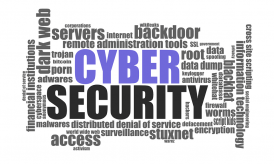People using Firefox even Google Chrome, Has surely got the message that the site you were getting was infected by malware or security risk. Surely you thought it strange and was afraid to return from the site. Now, imagine if this were your site? What you would not do to damage your visits and consequently your earnings, if the site in question generates profit. The damage that malware cause go well beyond an infected site.

Thinking about it, and to accommodate requests, I decided to talk a little bit of malware that can cause headache in your life.
How to protect your Site?
To prevent malware on your site you need to pay attention to three things: your own website, password used to transfer content to your site, and computer used to transfer content to the site.
Obviously, the site itself must be protected, because attackers often seek vulnerable software to exploitation so that they can modify the contents of your site. In the case of passwords, it is important to be protected. If they are easily guessed or stolen, can be used to modify the site and infect it again. Finally, computers are important because malware on your computer can steal your password and can modify the content that you are charging for it.
Check your site
- Make sure that any software you use (for example, software of blogging as WordPress, scripts third-party etc..) is kept updated with the latest security patches, whether by you (if you installed software) Or your hosting providers.
- Remove all scripts, Or other services software you are no longer using.
- Change the default passwords that come with software you are using.
- Use proper file permissions on your web server.
- Protect your password.
Use a strong password and change it occasionally, especially if you have reason to believe has been compromised. Choose a password with at least 10 characters that mix uppercase and lowercase letters, numbers and symbols and this type of password can be considered strong password.
I’ve been infected! Now what?
The first thing to do is drive the support of your server. In most cases they can remove the virus from the server and check where the infection came from. Usually any quality hosting usually do this, the question is whether they charge you or not. If the machine is owned by you or your hosting provider. It is at these times that we see even the quality of our hosting to solve a crisis.
Conclusion
As you can see,it is not that hard to make your site protected from malware that end up hurting your site. So get to work to make it safer.
















Is it possible for a site to get destroyed if infected by malware? Or just the SE position will be affected? If I will force my way in to an infected site, will my PC get infected too? Once in a while, I stumbled into a blog that has a malware warning but I did push myself in because I’m a regular visitor of that blog.
Yes, a infected site can destroy your site by changing codes, javascripts, also search engine position will be affected. If you are using an updated antivirus then you are safe while surfing but it is recommended to not visit those site for the time being!
Hi Isha,
Some nice advice, Though I haven’t faced such problem and hopoing don’t face in future as well. 😉
It’s always better to use trusted softwares while uploading anything on your server and protect them with passwords. Some useful advice. thanks!!
I know about such problem but thanks God, I haven’t had it. I try to protect myself as possible, I usually change my password and, of course, use anti -virus programs
Nice tips, webmaster should take care of these thing.Btw I regularly change password and take backup.
Good tips. Also, must remember to do frequent backups of the website, so that in case the site does get infected and needs a complete cleanup, we will always have backups to rely on.
Nice tips.I keep Backup of my blog’s database regularly and scan my site for malware frequently by sucuri.net(free scan).
Nice tips…
In addition, after contact your web hoster for your problem. It is important to change the passwords for all users and all accounts ;FTP access, administrator account, content management system authoring accounts. If you have access to your server, you better check to see if any open redirects and .htaccess file in your site have been exploited.